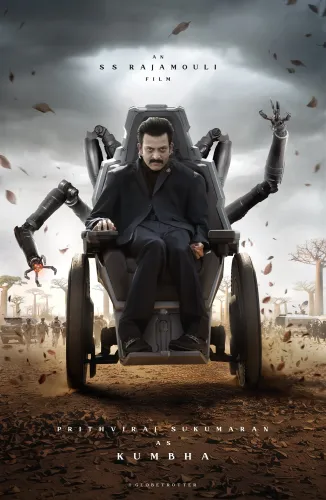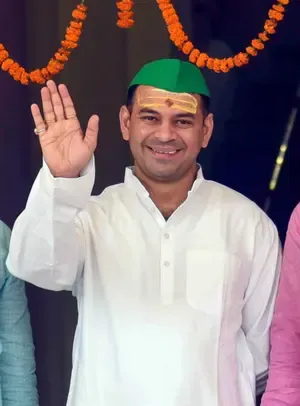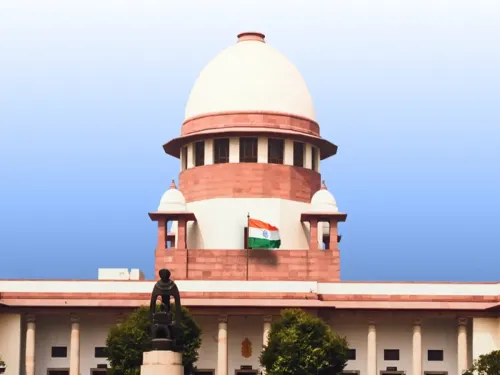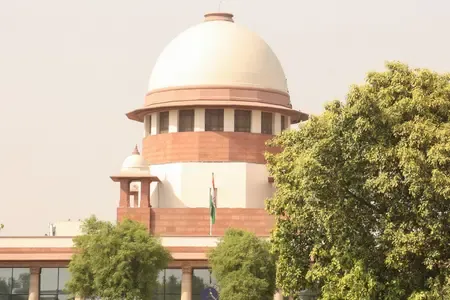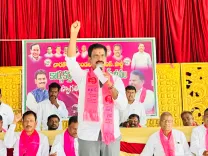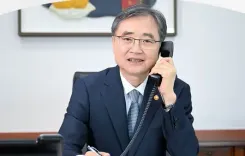Why Did AAP’s Transgender Councillor Join a New Political Party?
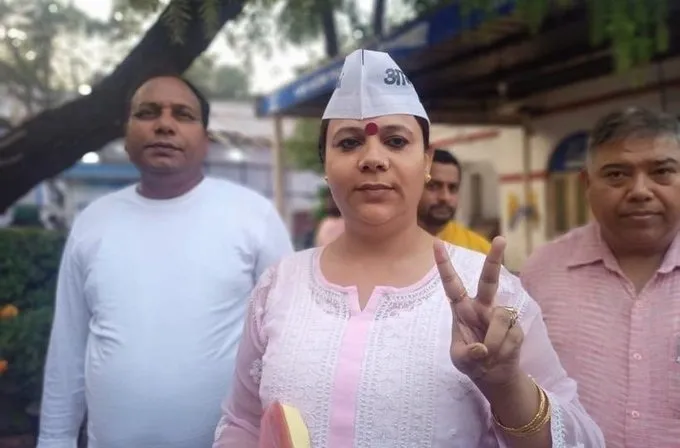
Synopsis
Key Takeaways
- Bobby Kinnar joins the Indraprastha Vikas Party after AAP split.
- 15 councillors resigned from AAP to form the new party.
- Internal issues cited as reasons for party discontent.
- The BJP gains from AAP's internal conflicts.
- Future of AAP in question amid ongoing defections.
New Delhi, May 20 (NationPress) Just three days following a split within the Aam Aadmi Party (AAP) in the municipal assembly, another member – a transgender councillor – has defected to the newly-established Indraprastha Vikas Party (IVP), which was formed by 15 former members of Arvind Kejriwal’s party.
Bobby Kinnar, the sole transgender councillor in the Municipal Corporation of Delhi elected from Sultanpuri, has formally notified Mayor Sardar Raja Iqbal Singh of the BJP about this decision to join the IVP.
In the letter, Bobby stated, “I am joining the IVP and intend to adhere to all directives of the party.”
Earlier, on May 17, a group of 15 municipal councillors who were elected on AAP tickets resigned and declared the formation of the Indraprastha Vikas Party.
This new political front is spearheaded by Hemchand Goel, alongside notable former AAP figures such as Mukesh Goel, Himani Jain, Devindra Kumar, Rajesh Kumar Ladi, Suman Anil Rana, Dinesh Bhardwaj, Runakshi Sharma, Manisha, Sahib Kumar, Rakhi Yadav, Usha Sharma, and Ashok Pandey who are pivotal in this rebellion.
The exit of Mukesh Goel from AAP was perceived as a significant political setback for Kejriwal’s party, given his previous role as the Leader of the House.
Goel remarked, “We have initiated the Indraprastha Vikas Party because we have been unable to perform any public service over the last year or two. The assembly has not been operating effectively due to ongoing disruptions,” suggesting that more councillors might join their ranks.
It is noteworthy that Goel had contested the Delhi Assembly elections earlier this year on an AAP ticket but was unsuccessful.
A joint resignation letter from the AAP councillors stated, “All municipal councillors were elected to the Municipal Corporation of Delhi in 2022 under the Aam Aadmi Party banner, but despite gaining power, the top leadership failed to manage the Corporation effectively.”
They emphasized a collapse in internal coordination, mentioning, “The connection between the top leadership and municipal councillors is minimal, leading to a decline in the party’s strength, reducing it to the role of an opposition.”
The letter further expressed, “As we were unable to deliver on our public commitments, we, the councillors, are resigning from the main membership of the party.”
This recent wave of resignations in the MCD adds to the series of challenges faced by AAP.
Earlier in February, the BJP became the largest party within the civic body after three AAP councillors – Anita Basoya from Andrews Ganj, Nikhil Chaprana from Hari Nagar, and Dharmveer Singh from R.K. Puram – switched allegiance to the BJP.
A similar migration occurred in September of last year when three AAP councillors defected to the BJP just one day prior to a critical standing committee election.
In light of these continuous defections, AAP recently withdrew from the mayoral contest scheduled for April 25, thus allowing the BJP to assume control of the MCD.

